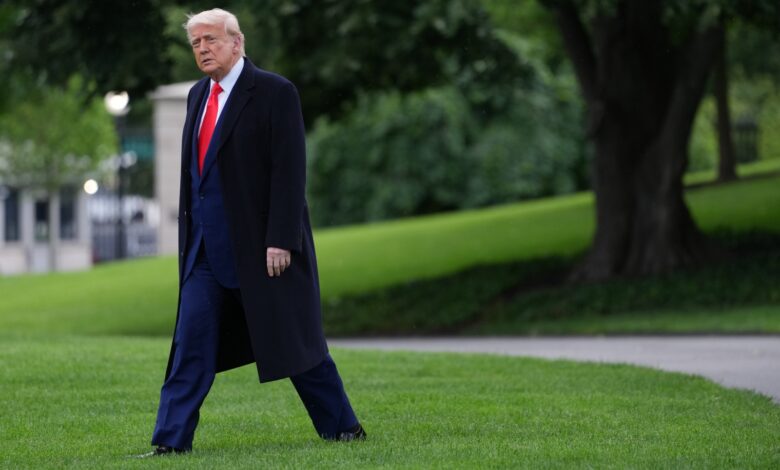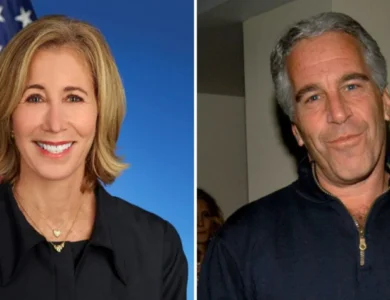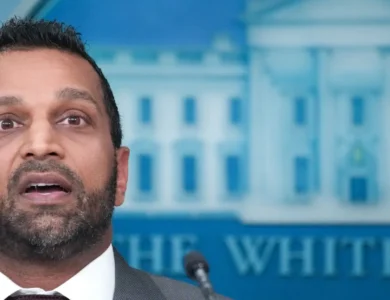GOP Senator Says He Won’t Be ‘Pressured’ By Trump to Support ‘Big, Beautiful Bill

Sen. Ron Johnson (R-Wis.) on Thursday criticized the House GOP’s sweeping package aimed at advancing President Trump’s tax agenda and cutting federal spending, taking a swipe at his House colleagues for, in his view, setting “the bar way too low” in their efforts to achieve meaningful savings.
“They just kept talking about $1.5 trillion. They set the bar way too low,” Johnson told reporters Friday morning after the “big, beautiful bill” narrowly passed the House this week.
“The goal of the House effort has been to pass one big, beautiful bill. It’s rhetoric. It’s false advertising. The goal should have been reduce average annual deficits, so we have to focus on spending,” Johnson added, per The Hill.
Reporters also questioned him about conservative holdouts in the House who had initially voiced similar concerns about the deficit, but ultimately allowed the bill to advance under pressure from President Donald Trump, who cautioned that failure on the legislation would cost the party dearly in the midterms.
“In the House, President Trump can threaten a primary, and those guys want to keep their seats. I understand the pressure,” he said. “Can’t pressure me that way.”
“I ran in 2010 because we were mortgaging our children’s future. It’s wrong,” he said.
“We were $14 trillion in debt, now we’re $37 [trillion],” he said. “Have you been watching what the bond markets are doing in relation to the one big, beautiful bill? They’re not thinking it’s a very big, beautiful bill.”
Extending Trump’s expiring 2017 tax cuts—a central feature of the legislative package—along with provisions to eliminate taxes on tips and overtime pay, is projected to add trillions of dollars to the national deficit over the next ten years, The Hill reported.
But Trump and his team have countered that claim by arguing that the legislation would unleash American entrepreneurialism and expand annual gross domestic product growth to as much as 3 percent, which, they say, will offset deficits.
The additional revenue, the White House says, will then begin to chip away at the deficit and lower it over time.
Alongside the tax cuts, House Republicans have introduced a series of proposals aimed at reducing federal spending by more than $1 trillion over the next several years. A significant portion of those savings is expected to come from reforms to Medicaid and the Supplemental Nutrition Assistance Program (SNAP).
The White House has asserted that the bill will not contribute to the deficit, while Republicans have worked to challenge cost estimates from the Congressional Budget Office (CBO). Still, some conservative lawmakers argue that additional steps are necessary to reduce the nation’s deficits in the years ahead, pointing to the U.S. national debt, which now exceeds $36 trillion.
“Everybody likes the tax cut, but when you’re $37 trillion in debt on the path to over $60 trillion in debt, right, when the Social Security Trust Fund is running out, somebody’s got to be the dad that says, ‘I know everybody wants to go to Disney World, but we just can’t afford it,’” Johnson said Thursday.
“So, I guess, I guess that’s what’s going to have to happen here in the Senate,” he added.
Trump has urged the Senate to act swiftly on the bill, as Congress approaches a midsummer deadline to raise the debt ceiling and avoid a potential national default. The legislation includes a provision to increase the debt ceiling by $4 trillion, raising the cap on how much the Treasury Department can borrow to meet the nation’s financial obligations.
Some Republicans support the higher limit to avoid a contentious debt ceiling battle with Democrats ahead of next year’s midterm elections, while others in the conservative wing are pushing for a lower increase, citing fiscal concerns.
“I’d increase the debt ceiling up to a point to give us time to focus on another big, beautiful bill,” Johnson said.





